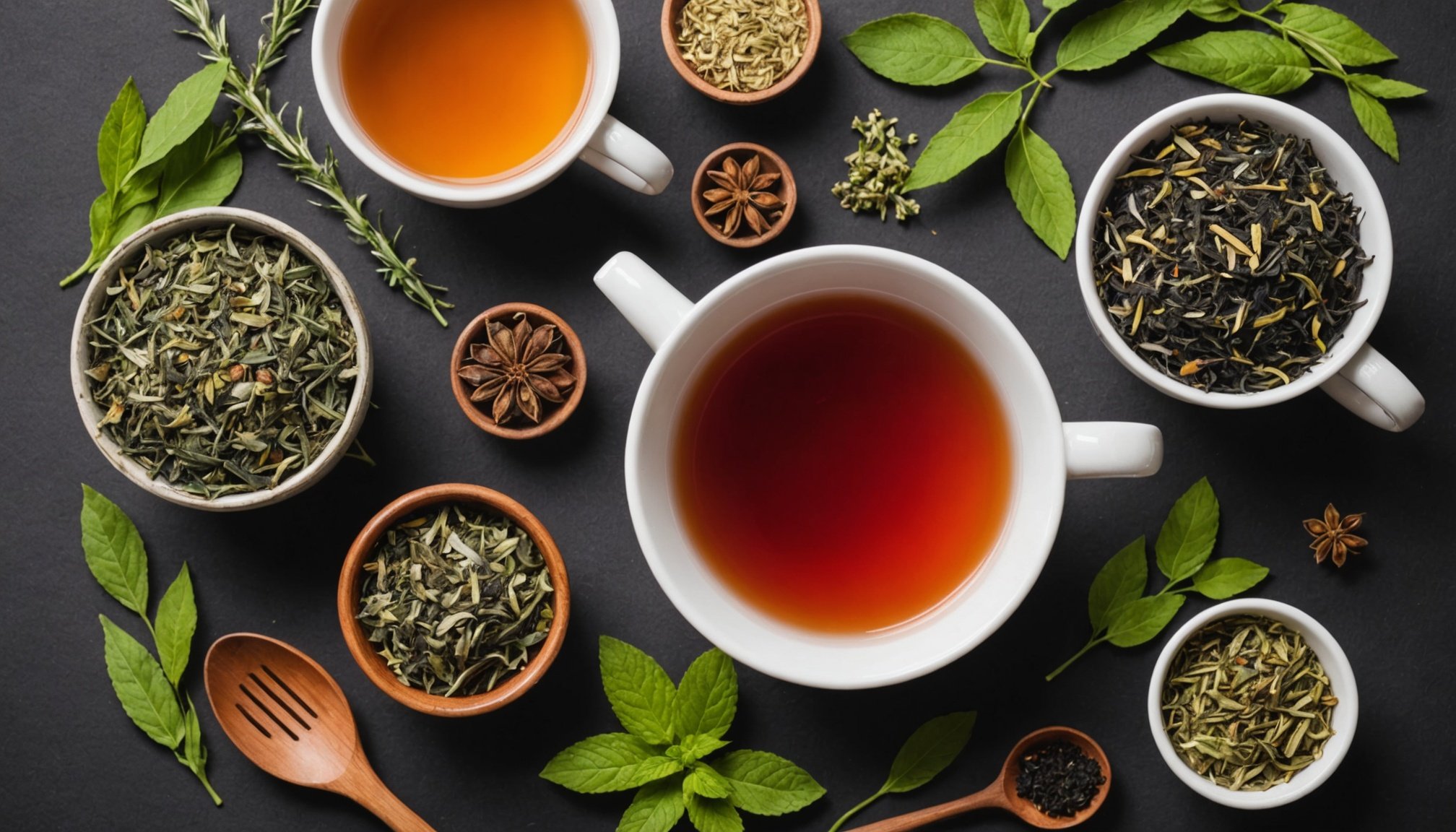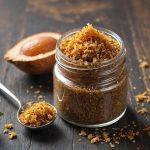Benefits of Herbal Teas for Skin and Hair Health
Herbal teas offer numerous benefits for both skin health and hair health. They are renowned natural remedies, packed with vital vitamins and antioxidants. These components play a significant role in promoting healthy skin and hair.
How Herbal Teas Support Skin and Hair Health
Herbal teas like chamomile, nettles, and rooibos are rich in antioxidants which combat oxidative stress, protecting skin cells from damage. Regular consumption can lead to improved complexion and radiance. Additionally, the vitamins found in these teas, including A, C, and E, enhance skin elasticity and aid in collagen production, promoting youthful skin.
Also read : Trendy DIY Face Masks: Boost Your Wardrobe with Stylish Fabric Picks!
For hair health, herbal teas provide essential nutrients that strengthen hair shafts, reduce dandruff, and encourage growth. The high content of minerals in herbs like nettles can boost hair strength and prevent breakage.
Hydration’s Importance
Hydration is crucial for maintaining vibrant skin and shiny hair. Drinking herbal teas ensures adequate fluid intake, keeping the skin hydrated and glowing. Similarly, hydrated hair is less prone to breakage and appears more lustrous. Herbal teas, with their natural ingredients, offer a refreshing alternative to sugary drinks while promoting overall skin and hair wellness.
Also read : Mastering at-home hair bleaching: essential tips for safe and damage-free results!
Key Herbs for Radiance
Herbal remedies are a treasure trove for skin and hair enthusiasts. Some key herbs are renowned for their remarkable properties.
Chamomile
Chamomile is celebrated for its soothing benefits and ability to reduce inflammation. Its anti-inflammatory properties make it a favourite for calming irritated skin. Simply steep dried chamomile flowers in hot water for about 10 minutes to prepare this herbal remedy. Drink 1 to 3 cups daily to enjoy optimal herbal benefits.
Nettles
Packed with an array of nutrients, nettles are a powerhouse for promoting hair growth. Rich in vitamins A, C, K, and minerals like iron and calcium, nettles support healthy hair and shine. Incorporating nettle tea into your routine is simple: brew a cup daily. Users rave about its positive impact on hair health, noting reduced hair loss and improved strength.
Rooibos
Rooibos is revered for its antioxidant properties, known to combat skin aging. To maximise its effects, steep rooibos leaves in boiling water for 5-7 minutes. Recent scientific studies underscore rooibos as pivotal for maintaining youthful skin, offering both a delicious and beneficial tea option.
Recipes for Herbal Tea Blends
Herbal tea blends offer a delightful way to enjoy the myriad benefits of herbal teas. Crafting your own herbal blends can be both a creative and therapeutic process. By combining different herbs, you can personalize flavours and maximize health benefits.
Crafting Customized Blends
Start by choosing a base herb that appeals to your taste and health goals. For a soothing blend, consider chamomile; for hair support, opt for nettles. Combine these with complementary herbs like peppermint or lavender to enhance flavour and health effects. A general guideline for tea recipes is to use one to two teaspoons of dried herbs per cup of hot water.
Suggested Pairings
Pairing chamomile with lemon balm creates a calming mix, ideal for relaxation. For a refreshing taste and digestive support, try combining peppermint with ginger. Experiment with rooibos and lemongrass for an antioxidant-rich blend that supports skin vitality.
Tips for Adjusting Taste
Adjust the proportions of herbs to suit your taste preferences. Add a touch of honey or a slice of lemon for sweetness and extra health benefits. Remember, the key to a perfect herbal tea blend is balancing flavour with the desired herbal benefits.
Preparation Methods
Crafting the perfect cup of herbal tea involves understanding different brewing techniques. Each method can slightly alter the essence and nutritional value of your tea, ensuring you extract maximum benefits from every sip.
Cold Brew vs. Hot Brew
Both cold brew and hot brew techniques offer unique advantages. Cold brewing, a slower process involving steeping tea in cold water for several hours, enhances subtle flavors and reduces bitterness. It’s an excellent method when aiming for a refreshing drink, particularly in warmer months.
Conversely, hot brewing involves steeping tea leaves in boiling water, a quicker method that often maximizes nutrient extraction, making it preferable for when you seek immediate herbal benefits.
Infusing with Additional Ingredients
Elevate your herbal tea by adding fruits and spices. Incorporating elements like lemon, known for its vitamin C boost, or ginger for its anti-inflammatory properties, enriches both flavor and health benefits. Cinnamon can add warmth, while mint provides a refreshing twist. Specific flavor pairings—such as chamomile with honey or rooibos with vanilla—can further enhance your tea experience, turning a simple brew into a delightful indulgence.
Testimonial Highlights
Exploring user experiences can provide valuable insight into the efficacy of herbal remedies. Many have shared their positive encounters with herbal teas, offering compelling success stories.
User testimonials often highlight the soothing properties of chamomile for reducing skin inflammation and promoting relaxation. For instance, one user described regular chamomile tea consumption as a gentle remedy for calming irritated skin, aligning with its known anti-inflammatory attributes.
On the hair health front, nettle tea receives accolades for its role in enhancing growth and strength. Stories abound of individuals noticing a significant reduction in hair loss and improvement in shine after incorporating nettle tea into their daily routine. These personal narratives are supported by scientific findings emphasizing the nutrient-rich profile of nettles, corroborating their effectiveness.
Rooibos, praised for its antioxidant properties, is celebrated by users for its potential to slow down skin aging. Anecdotal evidence from satisfied individuals mirrors research studies, which have consistently underscored rooibos’s unique benefits.
Collectively, these user experiences and scientific confirmations enrich the understanding of herbal teas, reinforcing their authenticity and increasing trust in their therapeutic potential.
Conclusion of Recommended Herbal Teas
Herbal teas, revered for their natural remedies, are a cornerstone in enhancing skin health and hair health. Integrating a variety of herbal teas into your routine can not only improve appearance but also provide holistic benefits. Chamomile, nettles, and rooibos are standout options for those looking to support their skin and hair. Chamomile reduces inflammation and soothes irritated skin. Nettles nourish hair with essential nutrients, promoting stronger growth. Rooibos fights skin aging with its potent antioxidants.
Now is the time to explore and test different herbal blends that resonate with your personal taste and health goals. Experiment with creative tea recipes by combining various herbs to discover unique flavors and benefits tailored to your preferences.
Regular consumption of these natural remedies supports healthier skin and hair, transforming your wellness regimen into a delightful experience. By embracing the versatility and benefits of herbal teas, you can foster a radiant glow and lustrous hair while enjoying a delightful beverage. The journey into herbal teas is one of wellness and discovery, offering an invitation to a peaceful, health-focused lifestyle.











